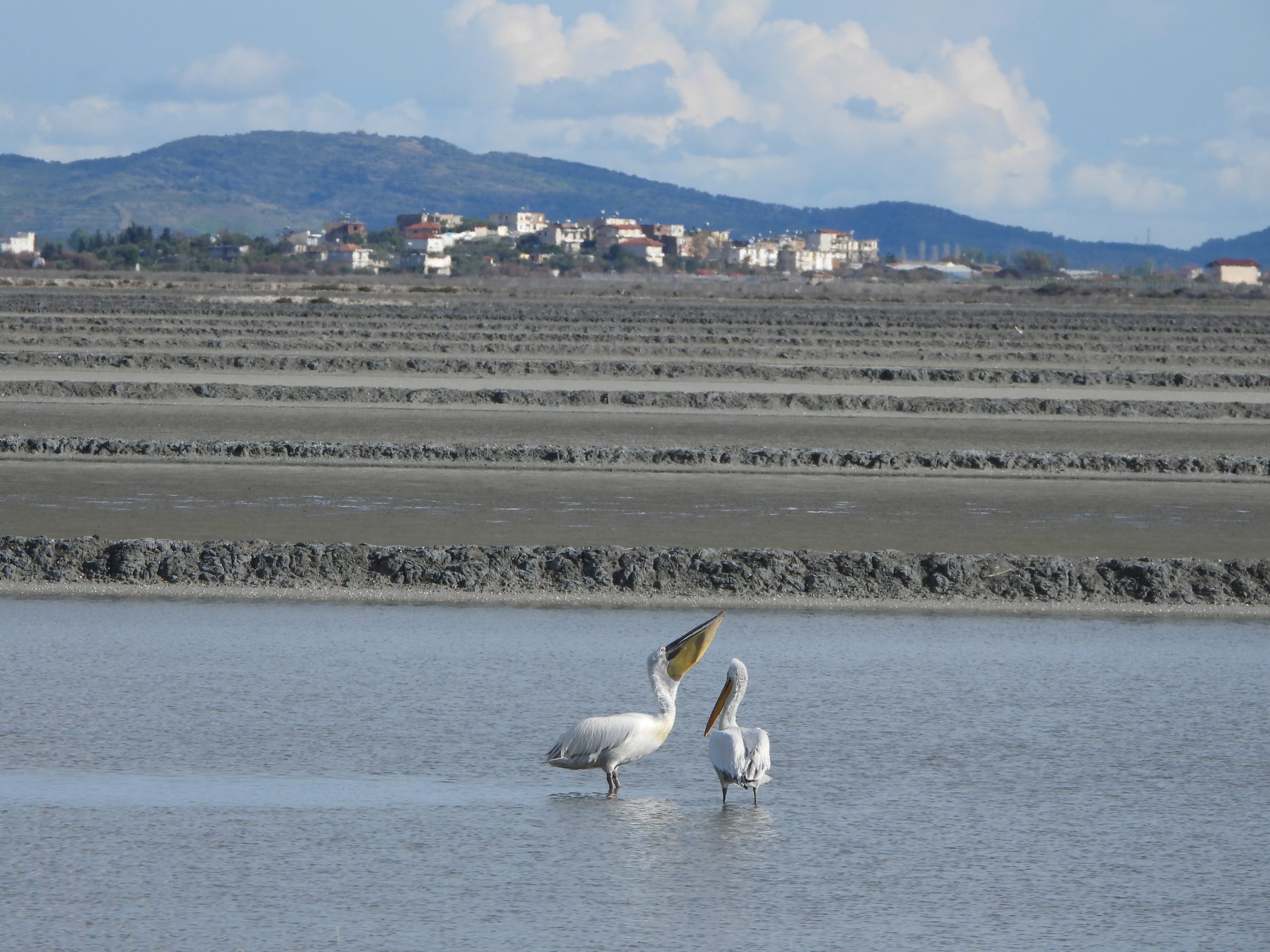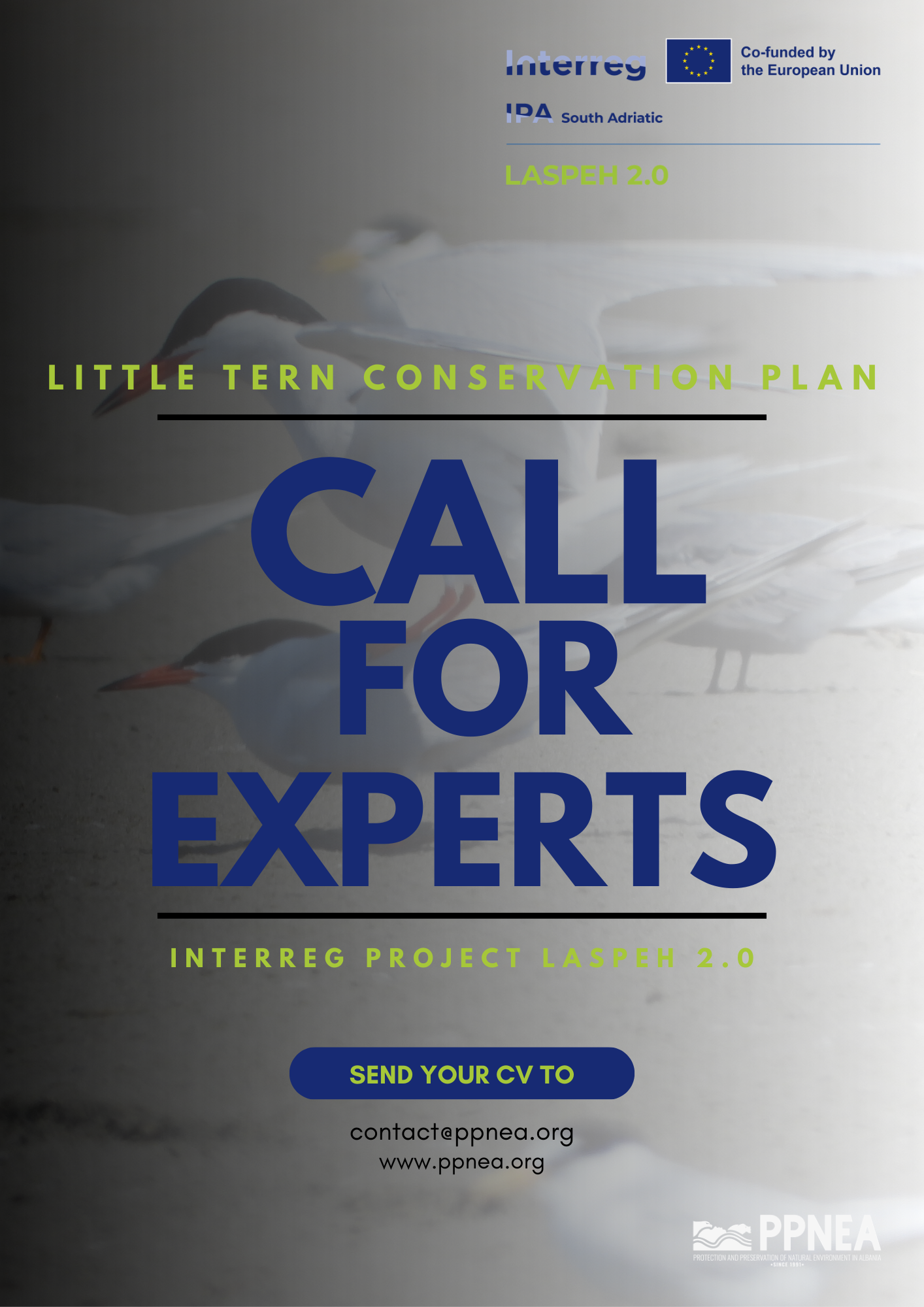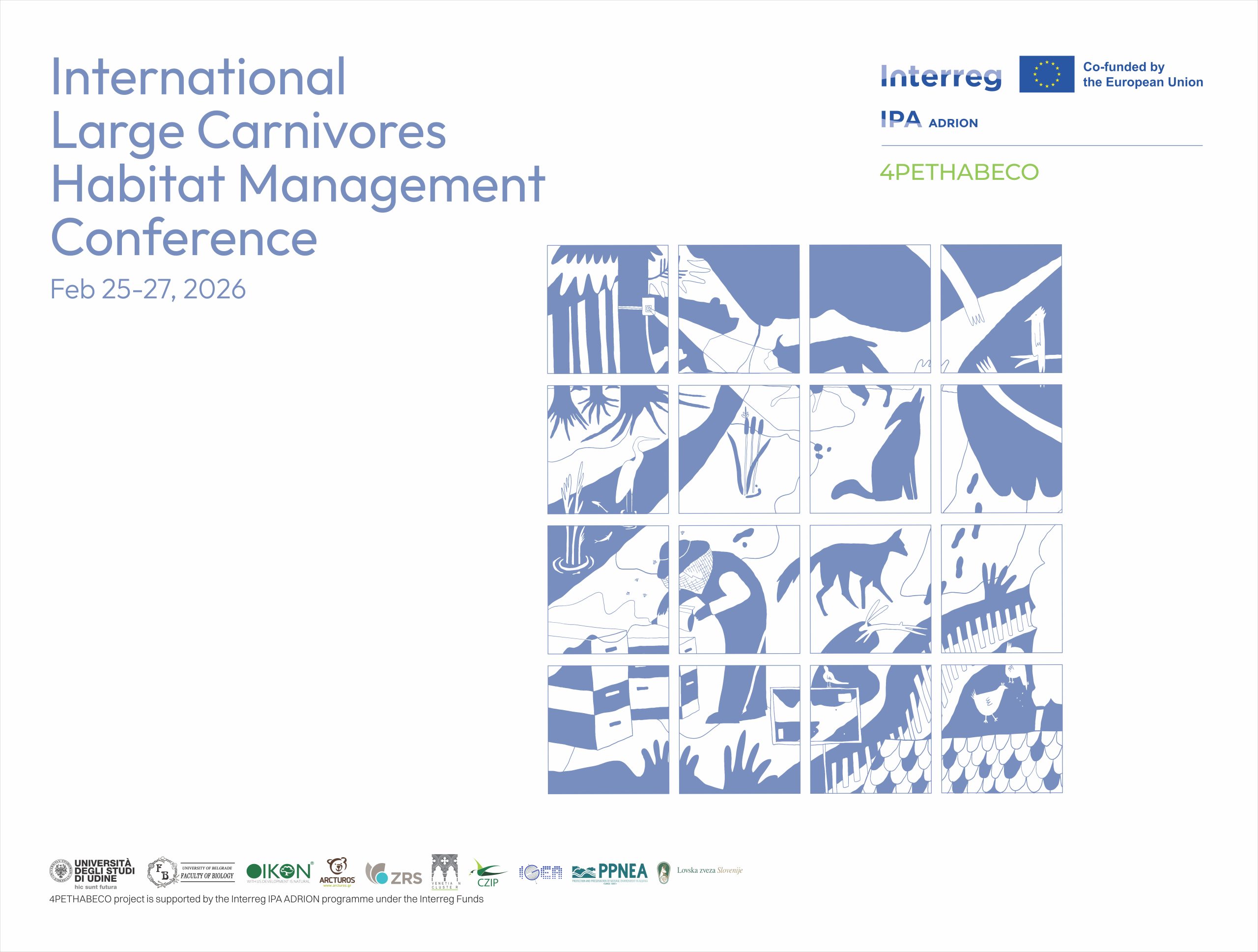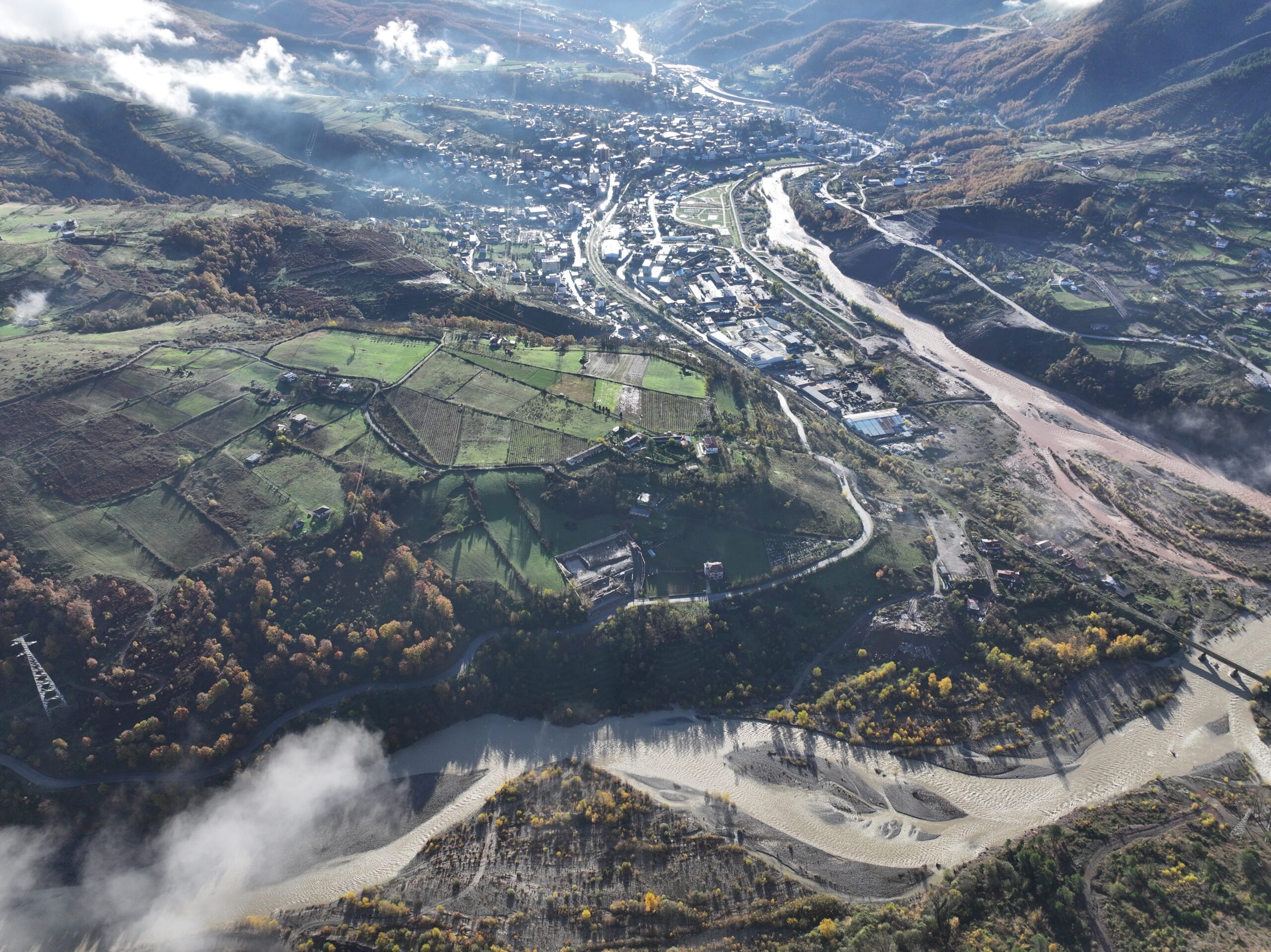Vlora airport: International community calls for a viable solution to save the natural paradise of Vjosa- Narta Lagoon in Albania
This week, the Bern Convention on the Conservation of European Wildlife has requested the suspension of the construction of an international airport in the protected area of the Vjosa-Narta Lagoon in Albania, a key stopover area for thousands of birds each year that migrate between Europe and Africa. This decision echoes the warnings of international conservation experts and scientists as well as European institutions. Members and partners of the Mediterranean Alliance for Wetlands have addressed letters to the Prime Minister Edi Rama, the EU Commission and International Air Transport Association (IATA), with the signatures of 33 organizations in more than 26 countries.
In a race against time to initiate the project, the Albanian government has bypassed several compulsory procedures, including the obtention of a valid construction permit. The latest findings suggest that, although the building works of Vlora International Airport had already started in 2021, the permit has only been granted this year, 15 months after the start of construction.
One year after the launch of the construction, the government removed the airport site from the Vjosa-Narta Protected Landscape, creating a spatial gap in the middle of the protected area. “The modification to the perimeter of the protected area (…) is not in line with its biodiversity value,” stresses the Bern Convention on the Conservation of European Wildlife in an appraisal report jointly prepared with the Convention on Migratory Species (CMS) and the African-Eurasian Migratory Waterbird Agreement (UNEP/AEWA). The Bern Convention has gone a step further and requested the project suspension until a valid Environmental Impact Assessment is carried out, which should meet international technical, scientific, and methodological standards.
The Mediterranean Alliance for Wetlands, an international network of 30 organizations from 15 countries, together with BirdLife partners, members of Wetlands International Europe and other NGOs, are requesting the prompt intervention of the authorities to halt the destruction of this Mediterranean jewel that is home to over 70 endangered species, 200 bird species and remarkable species such as Loggerhead turtle (Caretta caretta), Monk seal (Monachus monachus) or endemic species such as the Albanian water frog (Pelophylax shqipericus). The letters highlight that the accession negotiations of Albania to the EU should take into account the preservation of natural heritage and irreplaceable biodiversity.
“The development of the airport is only the tip of the iceberg of the general development of the area, ignoring not only the protection of the extraordinary natural treasures, but also the improvement of the livelihood of the local communities who benefit very little from this development.” said Emirjeta Adhami from Institute for Nature Conservation in Albania (INCA)
Local NGOs, Albanian Ornithological Society (AOS) and Protection and Preservation of Natural Environment in Albania (PPNEA), have already proposed alternative solutions to this airport project ranging from extending the size of Tirana International Airport to building a high-speed railway to connect the south of the country with Tirana or considering alternative locations for the airport such as Risili, Kafaraj or Levan, dependent on a proper environmental and risk assessment.
ENDS
Notes to editors:
- Letters sent by the NGOs: Link to all the letters
- Involvement of Munich International Airport: https://www.euronatur.org/en/what-we-do/news/controversial-airport-construction-in-albanian-protected-area-casts-shadow-as-far-as-munich
- The European Commission has declared that the works contradict “national laws and international biodiversity protection conventions that have already been ratified” by Albania.https://neighbourhood-enlargement.ec.europa.eu/system/files/2022-10/Albania%20Report%202022.pdf
- The European Parliament requests to “halt projects that risk violating national and international biodiversity protection norms, such as Vlorë International Airport“https://www.europarl.europa.eu/doceo/document/A-9-2023-0204_EN.html
- In November 2022, local NGOs PPNEA & AOS filed a lawsuit against the construction of the airport and in December a second lawsuit against the decision of the Council of Ministers to change the boundaries of the protected area. The lawsuits are both still ongoing: https://ppnea.org/press-release-environmental-groups-suing-the-albanian-authorities-for-the-illegal-construction-of-the-vlora-airport/?lang=en
- Map with alternative locations for the airport : https://drive.google.com/file/d/1LElwkxGA3hYHD3abvnMMymvCaWFkzW3C/view?usp=sharing
- Risks linked to airport construction
- Vjosa-Narta hosts many protected birds listed on Annex I of the European Birds Directive. Its natural value has gained international recognition through several designations such as Key Biodiversity Area and Important Bird Area, but also as an Emerald Site Candidate and a potential Natura 2000 site.
- Recent report of the Swiss Ornithological Centre points out that “The construction of an airport within such a bird-rich area will create a severe risk of collisions of airplanes with birds. A collision with one of the biggest birds in the world, the Dalmatian Pelican, which is breeding in the surroundings of the planned airport, is likely to end in a catastrophe.”
- The Vlora Airport is being built in a flood zone which could result in major economic damages in the long term. The airport site, a coastal wetland, is highly exposed to the risk of flooding due to three main factors:
- the site is exposed to winter flooding. The wetland has variable water levels. The old former military training airport was regularly flooded in winter, making it impracticable.
- the airport area is subject to rising sea levels due to climate change, as illustrated on this map by Emanuele Ingrassia with +1m in 2100 (RCP 8.5 scenario) (4).
- Exceptional flooding of the Vjosa river could have consequences for the whole area
- Local and national organizations fear that the airport could be the first step of a long journey to urbanize the Albanian coastline. The reduction of protected surface is particularly significant in coastal areas, with an estimated loss of over 20%. Iconic species such as the Mediterranean Monk Seal would be indirectly impacted by these changes.





